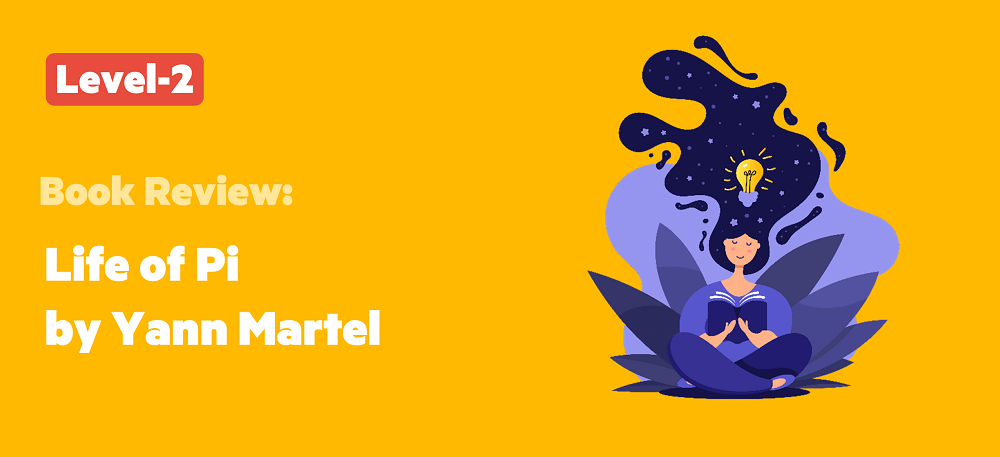Suggested Reading Time : 7 days
Category : Fiction
Even after knowing that this book has won the “Man Booker Prize” and after hearing so many good reviews as well, I wasn’t very keen to read this book. And one day, as I practically didn’t have any other book left to read, I picked this book up. After reading half of it, I thought how stupid of me to have not read it earlier. Yann Martel’s Life of Pi is an extraordinary novel about faith and hope. It also depicts the relationship of a man and an animal.
The book starts with the author sitting in a cafe and a gentleman asking him to write a book about the story he was going to tell him. The story, which will make him “believe in God”.
And so, the story he tells is about an exceptionally intelligent boy named “Pi”. He grew up in Pondicherry and around animals as his father was the owner of a zoo. And when Pi is sixteen, his parents choose to move to Canada. And hence, they close the zoo, pack their belongings, and board a Japanese cargo ship called the Tsimtsum. Travelling with them are many of their animals, bound for zoos in North America. However, they have only just begun their journey when the ship sinks. Only Pi survives, stranded in a boat with the unlikeliest of companions: a zebra, an orang-utan, a hyena and a 450 pound Royal Bengal Tiger named Richard Parker.
And thus, it is the story of Pi’s survival in a stranded boat in the Pacific ocean without food and water , with the truth that his family is no more and the truth lying in front of his eyes i.e. the ferocious tiger stuck with him in the boat.
What happens in the end is upon the reader to decide. They have two choices. One is brutal and the other will make them believe in God.
1. “Dare I say I miss him? I do. I miss him. I still see him in my dreams. They are nightmares mostly, but nightmares tinged with love. Such is the strangeness of the human heart.”
2. “To lose a brother is to lose someone with whom you can share the experience of growing old, who is supposed to bring you a sister-in-law and nieces and nephews, creatures who people the tree of your life and give it new branches. To lose your father is to lose the one whose guidance and help you seek, who supports you like a tree trunk supports its branches. To lose your mother, well, that is like losing the sun above you. It is like losing–I’m sorry, I would rather not go on.”
3. “It’s important in life to conclude things properly. Only then can you let go. Otherwise you are left with words you should have said but never did, and your heart is heavy with remorse.”
All in all, a must read book which keeps one well entertained as well.
Note: The review is contributed by Pallak Sharma.

